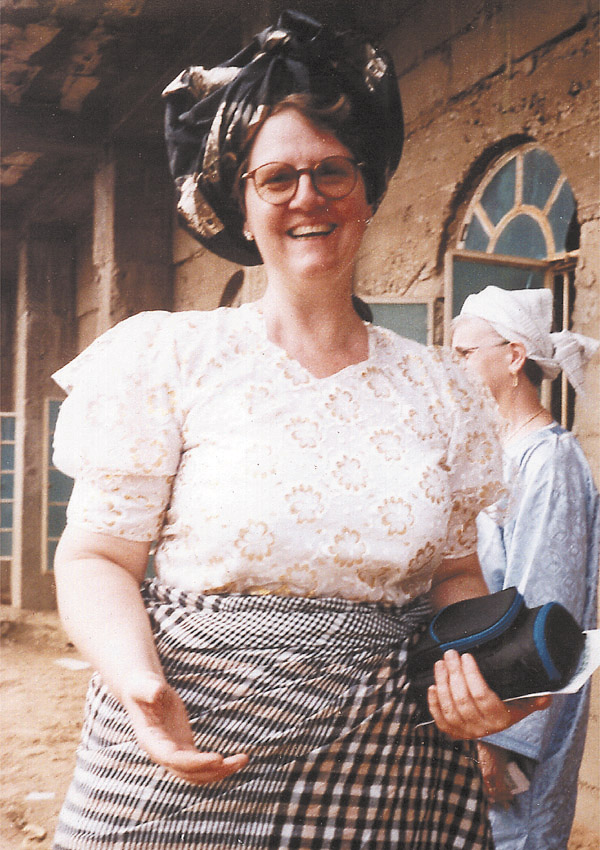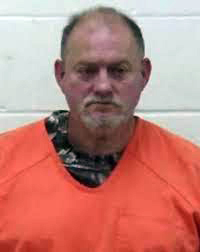
ZARIA, Nigeria (BP)–Missionary D’Anna Shotts almost called off traveling from Nigeria to Ghana to visit some old friends. The arrangements had been difficult to make, but she decided to go ahead with her getaway.
The day after she left Kaduna, Nigeria, where she has served as a librarian for the Baptist seminary, a riot broke out between Muslims and Christians, leaving a death toll in the hundreds. The next day, a mob of more than 3,000 people breached the block wall surrounding the seminary. The mob burned and destroyed all the buildings except for seven; Shotts’ home was one of the few spared.
Eleven people — including two students and a retired maintenance man — were killed in the attack.
“It’s incredible how quickly a life can turn upside-down,” Shotts, who grew up in the eastern Illinois town of Martinsville, said in an e-mail to the Illinois Baptist newsjournal. “God has been very present with us through this entire crisis.”
Closer to home, Shotts’ mother, Marilyn, who still lives in Martinsville, near Terre Haute, Ind., has been inundated with phone calls about her daughter’s safety. “I knew she was safe,” Marilyn Shotts said. “I had talked to her right before she left and knew she was OK in Ghana. We had probably heard about the trouble before she did.”
Political and religious tensions have been mounting in Nigeria since last year’s election of a Christian president with Baptist roots. A mostly Muslim region to the north, where military leaders had been the controlling force in the country, and a primarily Christian population in the south divide Nigeria. Several northern states had recently implemented Islamic law, known as shari’a, and Kaduna’s legislature had agreed to set up a committee to follow suit, Shotts said.
“For about two weeks before the incident, large groups of Muslims had been having peaceful rallies each day near the legislature to show their support. Christians, however, had only been sending small groups of influential leaders to meet with government officials,” Shotts said. “The Muslims were saying that the Christians didn’t care whether there was shari’a because they were not coming out in numbers to protest.”
As a result, Christians made announcements throughout their churches on the Sunday before the riots to assemble in four different areas of the town the next morning to march peacefully to the legislature to show their opposition. About 50,000 came to the rally, Shotts said. As they began to return home after the march, some Muslim youth began to hurl stones at the marchers, “and from there the situation deteriorated,” setting off two days of riots.
“There was rioting and burning in many parts of the city,” Shotts said. Fourteen Baptist churches in Kaduna had been destroyed, and many churches of other denominations had been burned. Many pastors, including two Baptist ministers, had been killed.
At the seminary, about 300 students and nearby residents tried to keep the mob of thousands at bay. Earlier in the day, the men had sent their families over the back wall to flee to an air force base more than a mile away. Dale and Brenda Gray, the only Southern Baptist missionaries on the campus at the time, “were trapped in my house on the seminary compound,” Shotts recounted. The medical missionaries escaped by climbing the 8-foot back wall with the others. The situation remains tense, and Shotts urged Christians to pray for peace to return to Nigeria.
“This shari’a issue has been a tinderbox for months,” Shotts said. “The Christians have insisted they will not tolerate Islamic law being imposed in the state, while the Muslims say either there will be shari’a or war.”
Shotts returned to Kaduna on Feb. 28. The Grays and several others had moved her belongings to Zaria, a community about 45 minutes away where the Grays live. Shotts’ home had been looted several times, but little had been taken. She is staying with the Grays until repairs are finished on a nearby mission house.
“I’ve been almost too busy to grieve, but the pain is very great,” Shotts said. “The violent death of loved ones is never easy to bear, and the loss of the facilities is very painful, too. Fifty-two years of love and hard work went into that campus, and in less than six hours it was all gone.” Her dog, Belle, survived but has been in poor health; Shotts decided to put her to sleep. “So now I have no home, no students and no dog, but God is still in control.”
The toll has been great on new Christians in Kaduna as the violence spread to surrounding villages, Shotts said. In one area, all seven churches were burned; the Christians, “except those of the people group we work with,” were either driven away or killed. One young man and his wife were attacked by family; their three-month-old baby was killed, and they have been hospitalized for cuts and burns.
Shotts has been encouraged by the faithfulness of Christians caught in the turmoil. “The persecution is causing them to scatter, but they are already talking about how to share the gospel in new places.” While Shotts has been discipling Nigerian Christians, the pastor she works with has been trying to relocate to a safer location where Christians can feel free to come to him. “Pray with us as we try to find safe havens for all those who need to leave until things settle down some,” she said.
As Nigerian Christians regroup, seminary leaders are trying to make the right decisions for its future. Seniors will return to finish their semester, probably by the end of April. Classes will be held at a Baptist chapel in southern Kaduna. The board of governors has asked Shotts to put a rudimentary library in place by then, which is no easy task because all textbooks, videos, equipment and furnishings were destroyed in the fires. The loss of materials and equipment alone is about $70,000.
While leaders hope all students can be called back by January, no decision has been made about rebuilding at the same location or finding a more secure site that would also allow for much-needed expansion. Although no rebuilding estimate has been given, Shotts believes it could total millions of dollars. “With the economy of Nigeria today, it is going to be a God-sized job to find money for rebuilding. Please pray with us for God’s guidance and provision.”
















